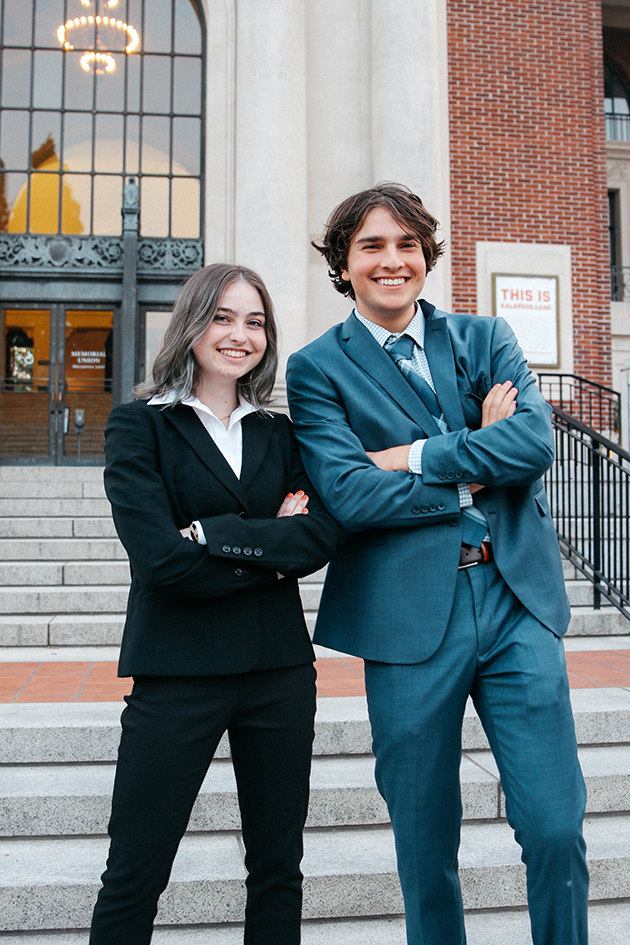Membership in many student organizations at Oregon State University declined during the COVID-19 pandemic, when it was difficult or impossible to meet in person or hold events. But, driven by the commitment of students, groups are beginning to bounce back. One club trying to rebuild is Oregon State’s mock trial team, led by two Honors College students, Kasaundra Bonanno and Dylan Varga.
During the pandemic, the club operated via Zoom for both meetings and tournaments, a measure that led to a large drop in participation: “We had maybe five members show up to our tournaments,” says Dylan, a third-year computer science major and co-captain of the mock trial team. A membership of ten diminished as time went on, mostly due to not being able to meet in-person, says Dylan. “When you’re not in the courtroom, you can’t express yourself the same way.”

But this year, the captains worked hard to get their numbers back up. Kasaundra, a second-year public health major and the team’s co-captain, looked to her community for support. Living in West Hall during her first year at Oregon State, Kasaundra spread the word amongst her fellow Honors College students, recruiting about half the team from her honors community. Dylan says, “It attracts the kind of people that would apply to and enjoy the Honors College.” But their outreach efforts were not limited to those enrolled in honors. The captains also appealed to students who were interested in law or performing – mock trial, says Dylan, is at the intersection between acting, speech and debate. Thanks to their efforts, the team has grown large enough that it split into two groups, both with multiple honors students.
While most of their members are interested in pre-law, many did not initially plan on attending law school after college, including the captains. “When I first joined the team, I had very little intention of actually looking into law school,” Kasaundra says. “But now, I feel it’s likely I’ll end up applying.”

Each year, teams are given a several hundred page document created by the American Mock Trial Association. This document outlines that year’s case, which alternates between civil and criminal. Teams are also given access to a list of witnesses and witness statements, from which they choose who to call to the stand. Teams are only informed which side they are representing when they enter the court room, so participants must create cases for both sides.
Tournaments are an all-day affair, split into two three-hour rounds. Local judges and attorneys serve as the competition’s judges.
Typically, individual teams have a local attorney who coaches them through the legal process. Oregon State’s team, however, has been without one for several years. Instead, the captains run the team’s practices with the assistance of their advisor, Dr. Rorie Solberg. A professor of political science in the School of Public Policy, Dr. Solberg assists with reserving practice spaces, creating a one-credit class during the winter term for club members to receive academic credit for their efforts and guiding the students through the complexities of the legal system.

While they are still working on rebuilding the program, the team has done well in recent years, and the captains are excited for its future. “Oregon State mock trial is a force to be reckoned with! We have so many passionate members ready to put in the work and ready to go to trial.”
If you would like to get involved with the Oregon State mock trial team or are interested in learning more, email oregonstatemocktrial@oregonstate.edu. You can also follow them on Instagram @OSUMockTrial.
By Rhianne Barratt, Honors College Student Writer
CATEGORIES: All Stories Features Homefeature Homestories Students